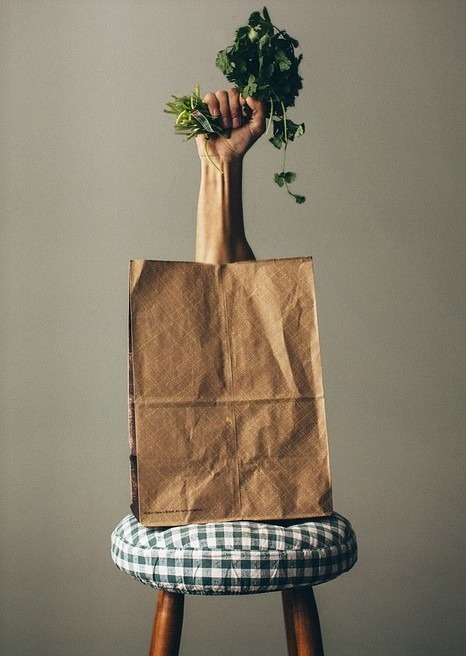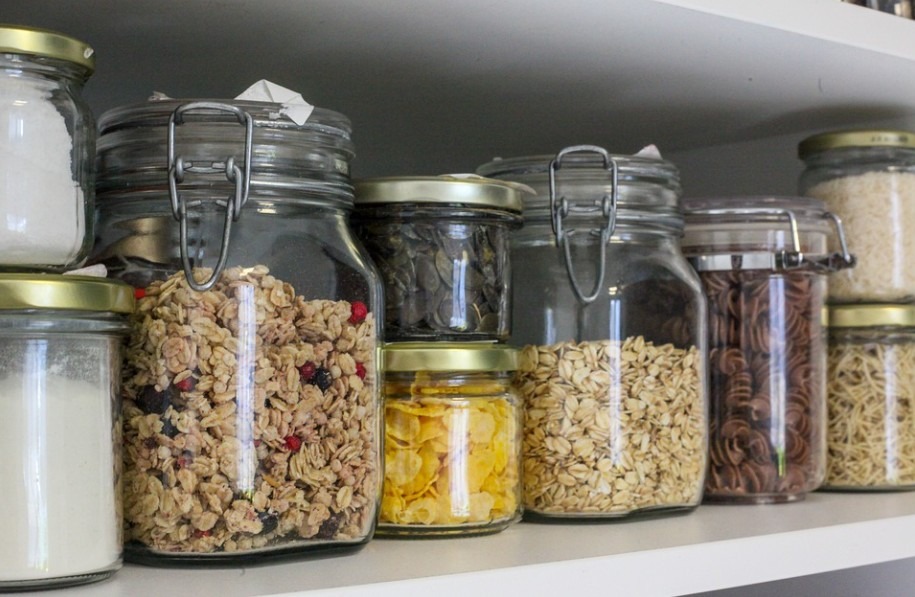Is your kitchen pantry filled with single-use plastics, such as those found on packets of nuts, baking goods, chips, and spaghetti? Or have you already switched to recyclable food containers, reusable produce bags, and glass jars? Wherever you are on your zero-waste pantry journey, this guide will inspire and help you along the way.
Go Plastic Free
It’s high time to ditch plastic permanently. According to Ocean Watch Australia, a shocking five trillion plastic bags are used by humans each year. Globally, that’s around 160,000 plastic bags per second! Given that the usage life of plastic bags is roughly 12 minutes, yet they are around for a millennium, it’s time for us to change these scary statistics quickly. Here’s how you can go plastic-free in your pantry:
- Say no to plastic bags when shopping. There isn’t a need to use a plastic produce bag when buying your two oranges or three apples. Nor is it necessary to place your purchased foods inside a plastic carry bag. Alternatively, you can use a paper bag, recyclable canvas bag, or your backpack.
- Stop using plastic straws. Don’t submit to the justification, “It’s only one straw.” If the entire population of one country used ‘just one straw,’ we’d see 25 million plastic straws in landfills every day.
- Don’t use plastic wrap. There are plenty of ways to store food with options like hemp bowl wraps, beeswax, reusable bowl covers, or even a plate on top of the bowl.
Don’t hesitate to invest on zero-waste pantry essentials!
Buy Local and Seasonal Food
Purchasing food directly from artisan producers, butchers, and farmers will save you, your packet, and the planet. Better yet, start home gardening!
There are many ways to grow herbs, fruits, and vegetables in even the smallest of areas these days. Children also love gardening, and it’s a fun way of educating them about where their food comes from, how to prepare it, and how to care for it.
Are you worried about keeping your produce fresh? Don’t be. Instead of using plastic bags, encase them in a damp tea towel and store them inside the fridge. It will have them stay fresh for longer.
Buy in Bulk
This one is pretty simple, purchase your food in bulk. When doing so, you lower your plastic waste significantly, savor more fresh food, and shy from any unnecessary food waste.
If you have local stores that offer bulk foods, don’t forget to bring some of your reused glass jars or package your produce in paper bags.
Choose Healthy Fats
Choose healthy fats such as eggs, avocados, seeds, nuts, and oils instead of filling your pantry with unhealthy foods like biscuits, chips, and other sugar or highly processed snacks. Fat takes longer to digest, which can make you satisfied for longer.
Next time you stock up on your pantry, buy healthy oils like sesame oil, olive oil, and coconut oil. You can also stock up on seeds like chia seeds, hemp seeds, pepitas (pumpkin seeds), sunflower seeds, linseeds (flaxseeds), and nuts like walnuts, cashews, macadamias, almonds, and pecans.
Plan Your Meals in Advance
It’s simple yet satisfying to plan your and your family’s meals for every day of the weak. Planning meals in advance allow you to prepare for those late nights when you’re stuck at work. Nothing much beats knowing that you’ve got an easy-to-prepare, healthy and nutritious meal waiting for you at home.
Double The Batch
It’s always an excellent idea to cook your recipes in double batches. If you’re making a bolognese, lasagne, stew, or soup, double the batch. If you don’t end up eating the meal within the week, simply place it in the freezer for an easy night in.
Additionally, you can cook up more mash, rice, pasta, lentils, or beans than you need in just one sitting; incorporate into any recipe for added nutrition and place the leftovers in the fridge, stored in an airtight container for several days.
Avoid Food Waste
Approximately 3.28 million tonnes of food is driven to landfills each year, and that’s just in one country. That’s a surprising 137 kilograms of food waste for every person per year! To send fewer food wastes to landfills, you can practice the following:
- Begin a fridge waste inventory. Record down everything you toss in the bin and turn it into a family challenge every week to lessen the number of items on the list. If it’s cleared at the end of the week, rejoice.
- Don’t throw out stodgy or sad vegetables. Instead, boil them with a few herbs and spices and homemade stock, add a splash of plain cream or coconut cream and mix in a food processor to make a simple soup.
- Store animal fats to reuse. Simply drain the fats into a jar and use in place of olive oil or butter the next time you’re frying.



